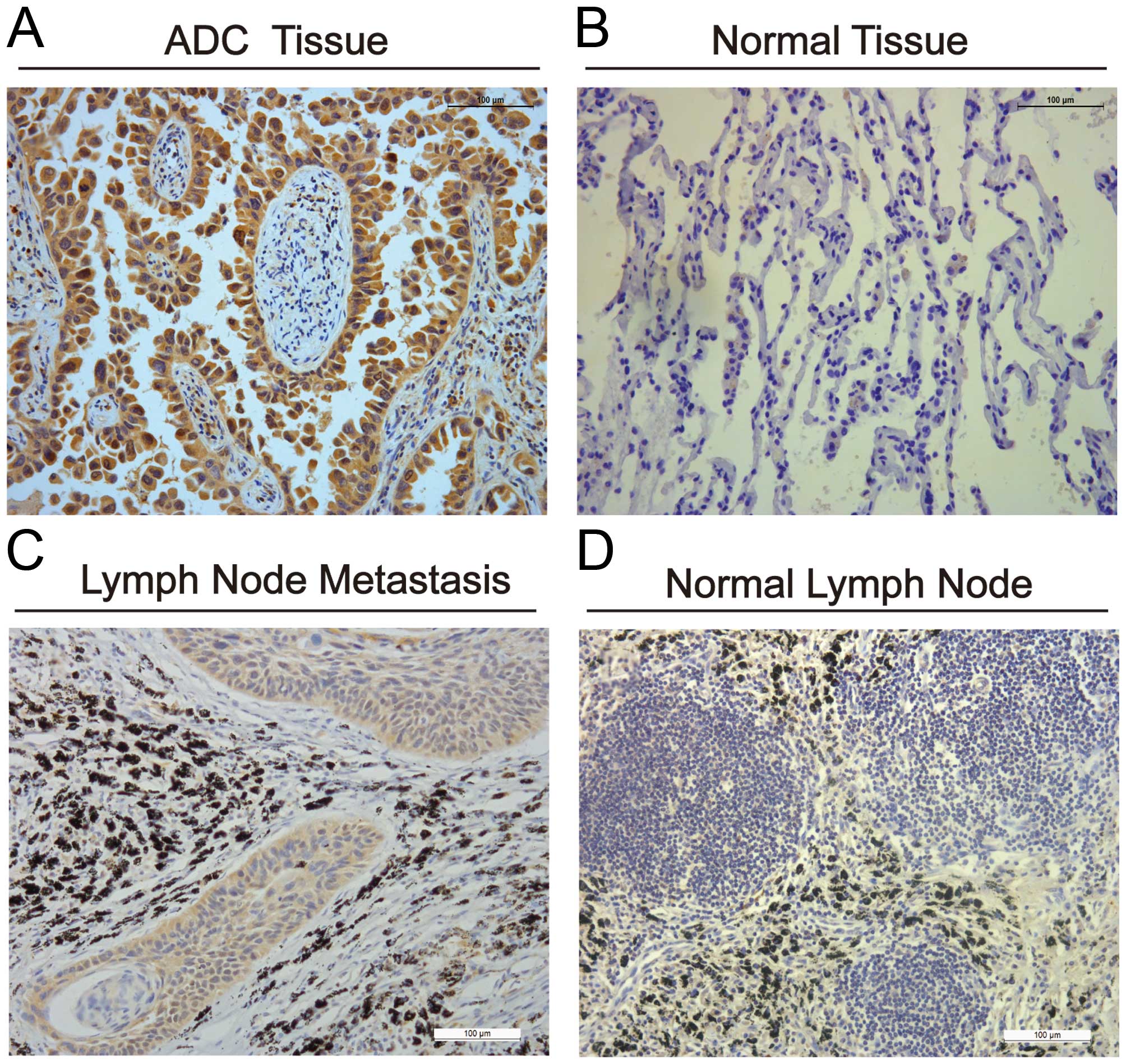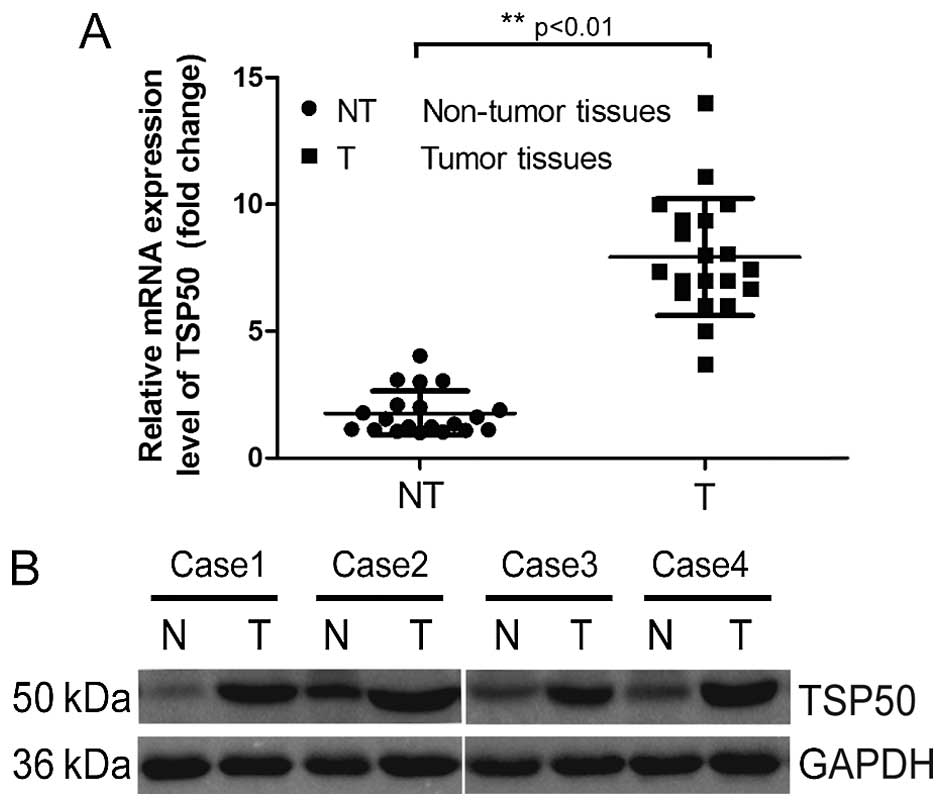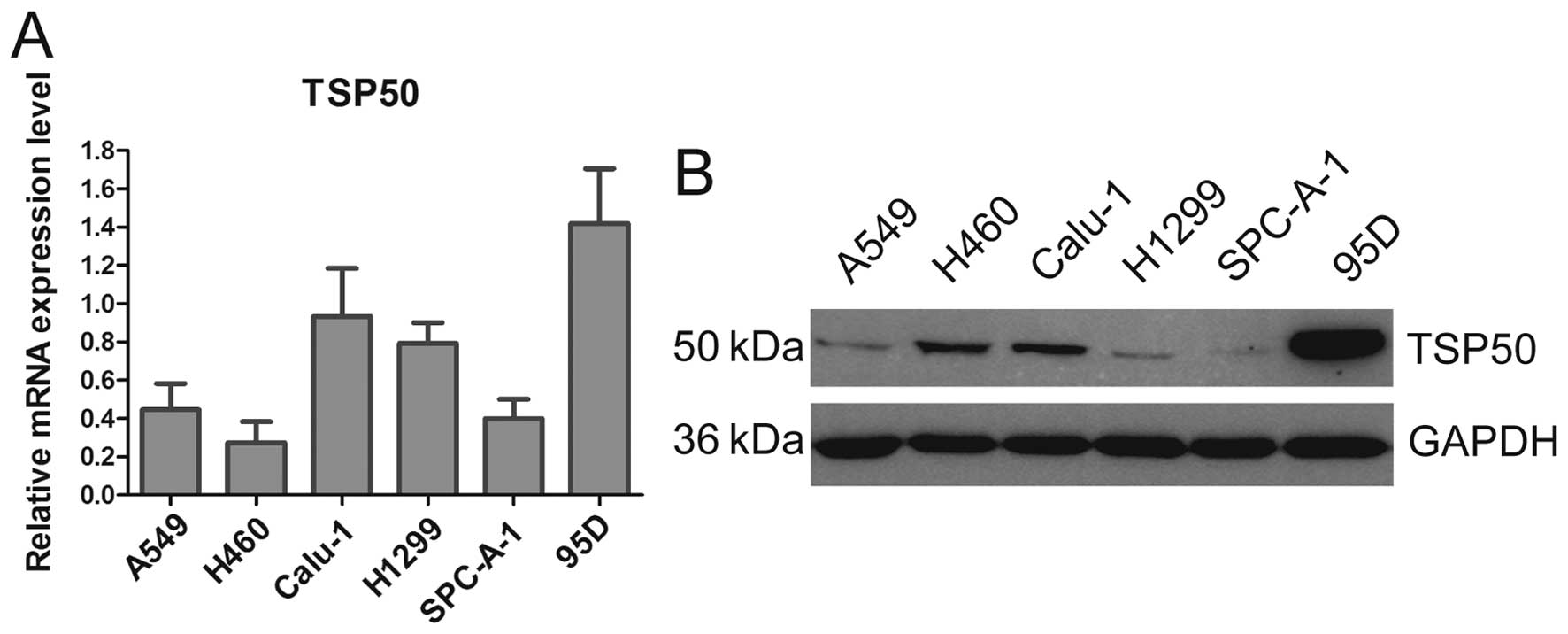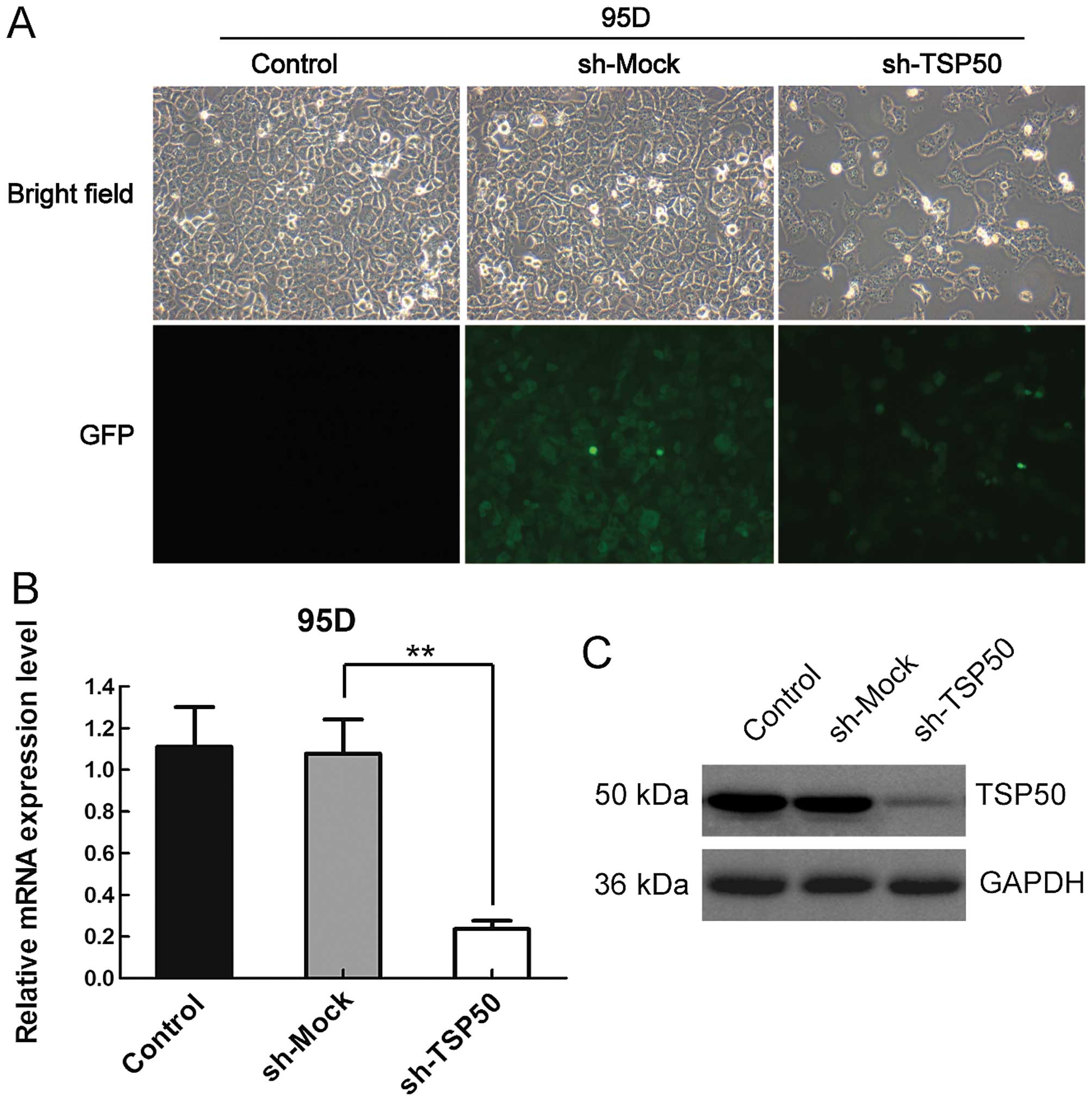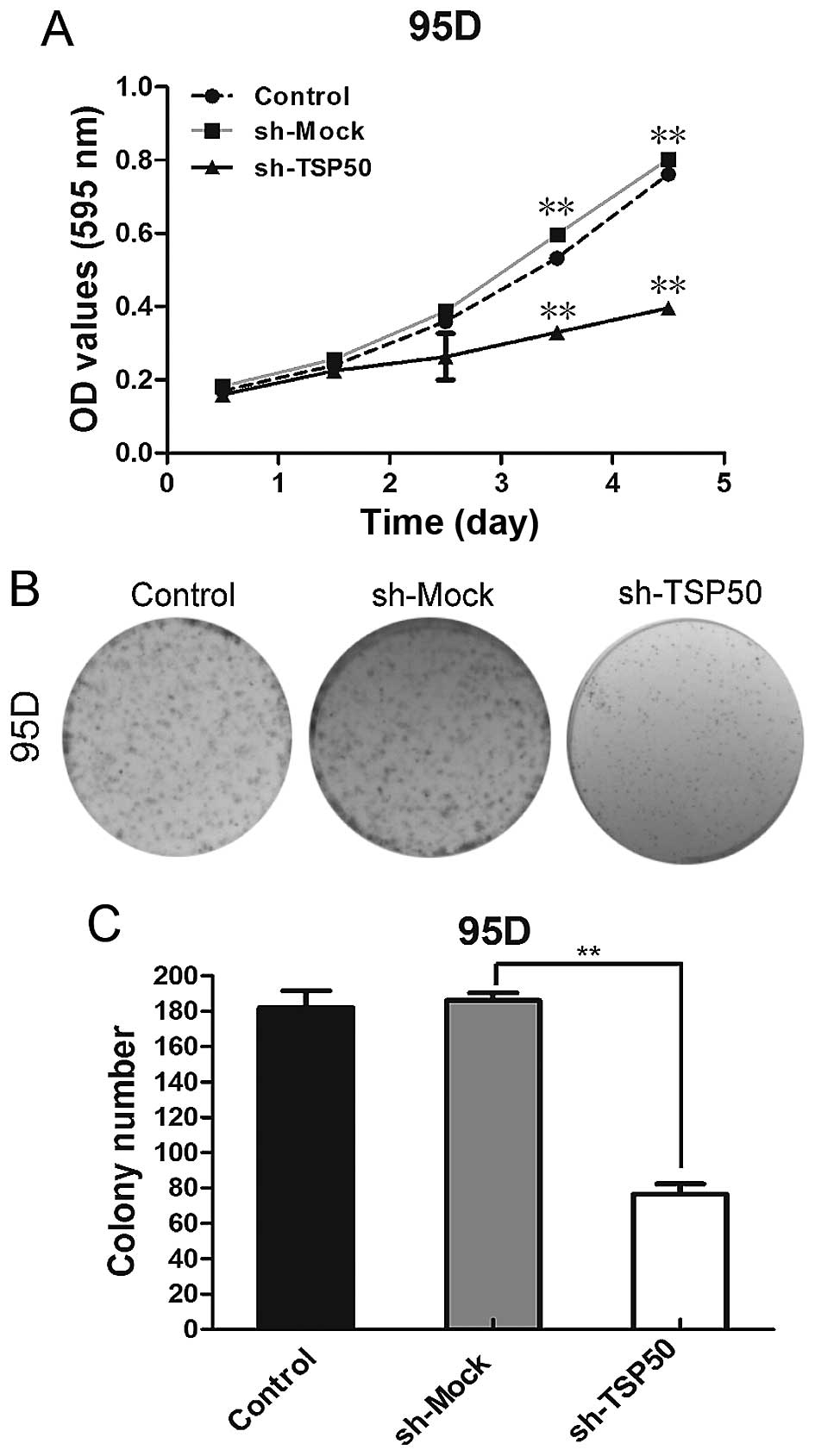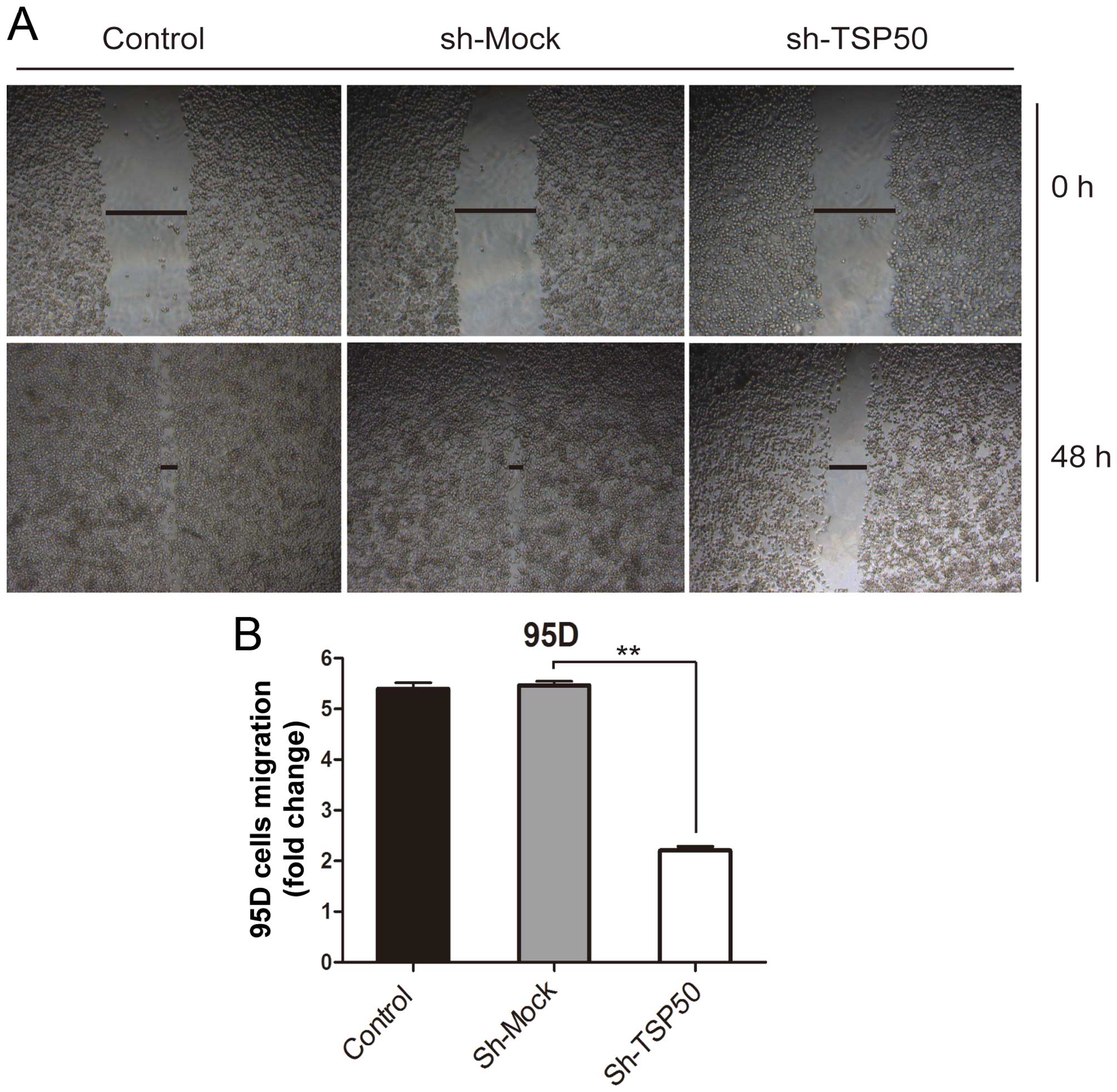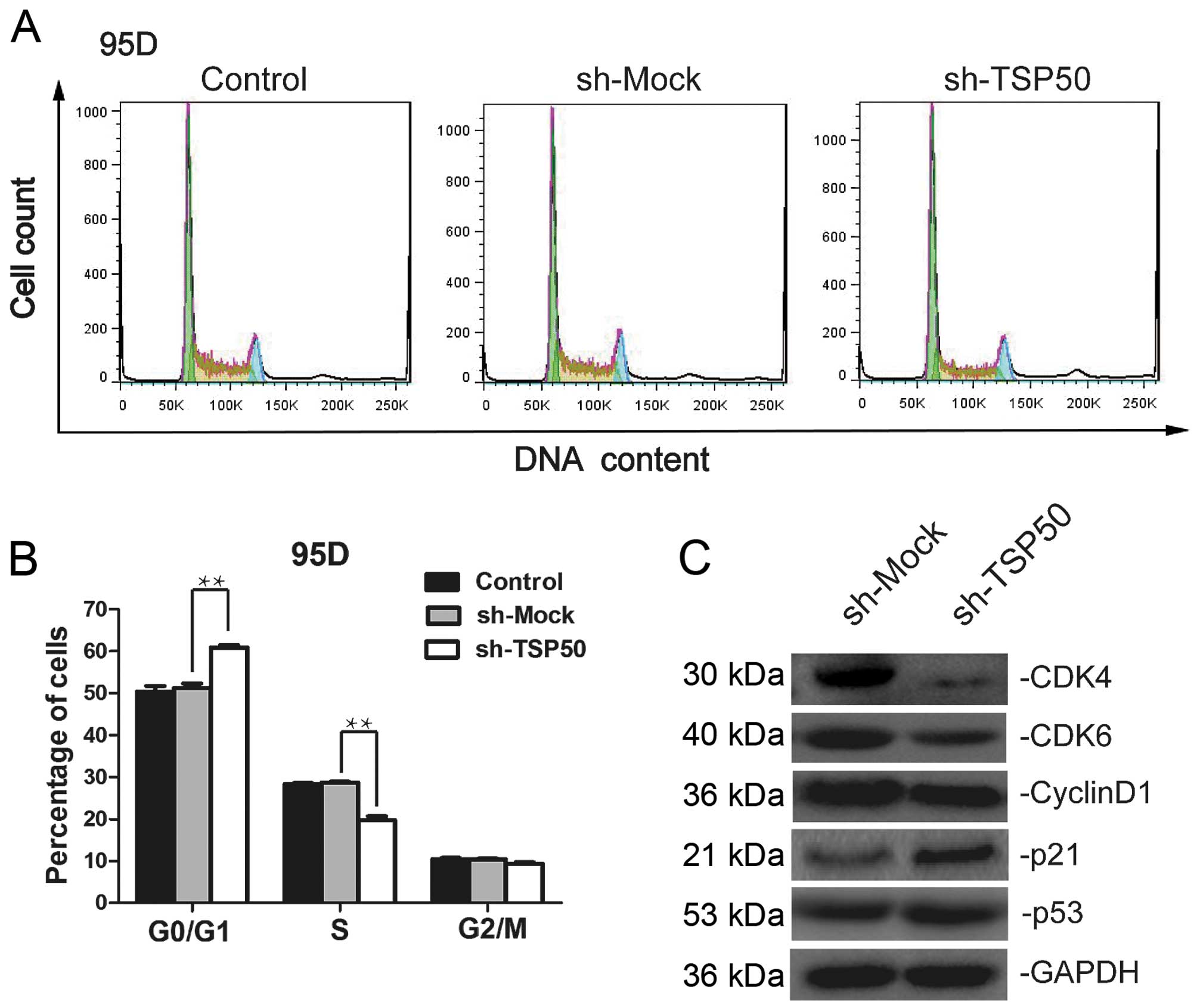|
1
|
Molina JR, Yang P, Cassivi SD, Schild SE
and Adjei AA: Non-small cell lung cancer: Epidemiology, risk
factors, treatment, and survivorship. Mayo Clin Proc. 83:584–594.
2008. View Article : Google Scholar : PubMed/NCBI
|
|
2
|
Katzel JA, Fanucchi MP and Li Z: Recent
advances of novel targeted therapy in non-small cell lung cancer. J
Hematol Oncol. 2:22009. View Article : Google Scholar : PubMed/NCBI
|
|
3
|
Gilmore DM, Khullar OV, Jaklitsch MT,
Chirieac LR, Frangioni JV and Colson YL: Identification of
metastatic nodal disease in a phase 1 dose-escalation trial of
intraoperative sentinel lymph node mapping in non-small cell lung
cancer using near-infrared imaging. J Thorac Cardiovasc Surg.
146:562–570. 2013. View Article : Google Scholar : PubMed/NCBI
|
|
4
|
Kumarakulasinghe NB, van Zanwijk N and Soo
RA: Molecular targeted therapy in the treatment of advanced stage
non-small cell lung cancer (NSCLC). Respirology. 20:370–378. 2015.
View Article : Google Scholar : PubMed/NCBI
|
|
5
|
Fukui T, Taniguchi T, Kawaguchi K,
Fukumoto K, Nakamura S, Sakao Y and Yokoi K: Comparisons of the
clinicopathological features and survival outcomes between lung
cancer patients with adenocarcinoma and squamous cell carcinoma.
Gen Thorac Cardiovasc Surg. 63:507–513. 2015. View Article : Google Scholar : PubMed/NCBI
|
|
6
|
Yang YC, Cheng TY, Huang SM, Su CY, Yang
PW, Lee JM, Chen CK, Hsiao M, Hua KT and Kuo ML: Cytosolic PKM2
stabilizes mutant EGFR protein expression through regulating
HSP90-EGFR association. Oncogene. Oct 26–2015.Epub ahead of print.
View Article : Google Scholar
|
|
7
|
Yuan L, Shan J, De Risi D, Broome J,
Lovecchio J, Gal D, Vinciguerra V and Xu HP: Isolation of a novel
gene, TSP50, by a hypomethylated DNA fragment in human breast
cancer. Cancer Res. 59:3215–3221. 1999.PubMed/NCBI
|
|
8
|
Wei J, Liu Y, Yang S, Xu J, Kong H, Han B,
Bao Y, Wu Y, Yin W, Li W, et al: Screening of single-chain variable
fragments against TSP50 from a phage display antibody library and
their expression as soluble proteins. J Biomol Screen. 11:546–552.
2006. View Article : Google Scholar : PubMed/NCBI
|
|
9
|
Shan J, Yuan L, Xiao Q, Chiorazzi N,
Budman D, Teichberg S and Xu HP: TSP50, a possible protease in
human testes, is activated in breast cancer epithelial cells.
Cancer Res. 62:290–294. 2002.PubMed/NCBI
|
|
10
|
Xu H, Shan J, Jurukovski V, Yuan L, Li J
and Tian K: TSP50 encodes a testis-specific protease and is
negatively regulated by p53. Cancer Res. 67:1239–1245. 2007.
View Article : Google Scholar : PubMed/NCBI
|
|
11
|
Wang M, Bao YL, Wu Y, Yu CL, Meng X, Xu HP
and Li YX: Identification and characterization of the human
testes-specific protease 50 gene promoter. DNA Cell Biol.
27:307–314. 2008. View Article : Google Scholar : PubMed/NCBI
|
|
12
|
Wang M, Bao YL, Wu Y, Yu CL, Meng XY,
Huang YX, Sun Y, Zheng LH and Li YX: Basic FGF downregulates TSP50
expression via the ERK/Sp1 pathway. J Cell Biochem. 111:75–81.
2010. View Article : Google Scholar : PubMed/NCBI
|
|
13
|
Zhou L, Bao YL, Zhang Y, Wu Y, Yu CL,
Huang YX, Sun Y, Zheng LH and Li YX: Knockdown of TSP50 inhibits
cell proliferation and induces apoptosis in P19 cells. IUBMB Life.
62:825–832. 2010. View
Article : Google Scholar : PubMed/NCBI
|
|
14
|
Song ZB, Ni JS, Wu P, Bao YL, Liu T, Li M,
Fan C, Zhang WJ, Sun LG, Huang YX, et al: Testes-specific protease
50 promotes cell invasion and metastasis by increasing
NF-kappaB-dependent matrix metalloproteinase-9 expression. Cell
Death Dis. 6:e17032015. View Article : Google Scholar : PubMed/NCBI
|
|
15
|
Liu YL and Sun YN: Down-regulation of
testes-specific protease 50 induces apoptosis in human
laryngocarcinoma HEp2 cells in a NF-κB-mediated pathway. Mol Biol
Rep. 41:7743–7747. 2014. View Article : Google Scholar : PubMed/NCBI
|
|
16
|
Zhang X: Depression of testes-specific
protease 50 (TSP50) inhibits cell proliferation and induces
apoptosis in laryngocarcinoma. Tumour Biol. 35:10781–10788. 2014.
View Article : Google Scholar : PubMed/NCBI
|
|
17
|
Yuan J, Wu C, Huang M, Zhou J, Ben W and
Zhang G: TSP50 depends on its threonine protease activity and its
interactions with TNF-α-induced NF-κB for its role in human
cervical tumorigenesis. Cell Biochem Biophys. 71:891–896. 2015.
View Article : Google Scholar
|
|
18
|
Qiao WL, Shi BW, Han YD, Tang HM, Lin J,
Hu HY and Lin Q: Testes-specific protease 50 as an independent risk
factor for poor prognosis in patients with non-small cell lung
cancer. Oncol Lett. In press.
|
|
19
|
Liu F, Cao Q, Liu N, Li C, You C, Liu C,
Xue L and Luo R: Overexpression of testes-specific protease 50
(tsp50) predicts poor prognosis in patients with gastric cancer.
Gastroenterol Res Pract. 2014:4982462014. View Article : Google Scholar : PubMed/NCBI
|
|
20
|
Zheng L, Xie G, Duan G, Yan X and Li Q:
High expression of testes-specific protease 50 is associated with
poor prognosis in colorectal carcinoma. PLoS One. 6:e222032011.
View Article : Google Scholar : PubMed/NCBI
|
|
21
|
Kim YD, Park HR, Song MH, Shin DH, Lee CH,
Lee MK and Lee SY: Pattern of cancer/testis antigen expression in
lung cancer patients. Int J Mol Med. 29:656–662. 2012.PubMed/NCBI
|
|
22
|
Gjerstorff MF, Andersen MH and Ditzel HJ:
Oncogenic cancer/testis antigens: Prime candidates for
immunotherapy. Oncotarget. 6:15772–15787. 2015. View Article : Google Scholar : PubMed/NCBI
|
|
23
|
Greve KB, Lindgreen JN, Terp MG, Pedersen
CB, Schmidt S, Mollenhauer J, Kristensen SB, Andersen RS, Relster
MM, Ditzel HJ, et al: Ectopic expression of cancer/testis antigen
SSX2 induces DNA damage and promotes genomic instability. Mol
Oncol. 9:437–449. 2015. View Article : Google Scholar
|
|
24
|
Cilensek ZM, Yehiely F, Kular RK and Deiss
LP: A member of the GAGE family of tumor antigens is an
anti-apoptotic gene that confers resistance to Fas/CD95/APO-1,
Interferon-gamma, taxol and gamma-irradiation. Cancer Biol Ther.
1:380–387. 2002. View Article : Google Scholar : PubMed/NCBI
|
|
25
|
Kular RK, Yehiely F, Kotlo KU, Cilensek
ZM, Bedi R and Deiss LP: GAGE, an antiapoptotic protein binds and
modulates the expression of nucleophosmin/B23 and interferon
regulatory factor 1. J Interferon Cytokine Res. 29:645–655. 2009.
View Article : Google Scholar : PubMed/NCBI
|
|
26
|
Zeng Y, He Y, Yang F, Mooney SM,
Getzenberg RH, Orban J and Kulkarni P: The cancer/testis antigen
prostate-associated gene 4 (PAGE4) is a highly intrinsically
disordered protein. J Biol Chem. 286:13985–13994. 2011. View Article : Google Scholar : PubMed/NCBI
|
|
27
|
Israels ED and Israels LG: The cell cycle.
Oncologist. 5:510–513. 2000. View Article : Google Scholar : PubMed/NCBI
|
|
28
|
Kim JK and Diehl JA: Nuclear cyclin D1: An
oncogenic driver in human cancer. J Cell Physiol. 220:292–296.
2009. View Article : Google Scholar : PubMed/NCBI
|
|
29
|
Mahale S, Bharate SB, Manda S, Joshi P,
Jenkins PR, Vishwakarma RA and Chaudhuri B: Antitumour potential of
BPT: A dual inhibitor of cdk4 and tubulin polymerization. Cell
Death Dis. 6:e17432015. View Article : Google Scholar : PubMed/NCBI
|
|
30
|
Lin Z, Xiong L, Zhou J, Wang J, Li Z, Hu H
and Lin Q: γ-Glutamylcyclotransferase knockdown inhibits growth of
lung cancer cells through G0/G1 phase arrest. Cancer Biother
Radiopharm. 30:211–216. 2015. View Article : Google Scholar : PubMed/NCBI
|
|
31
|
Lv XJ, Zhao LJ, Hao YQ, Su ZZ, Li JY, Du
YW and Zhang J: Schisandrin B inhibits the proliferation of human
lung adenocarcinoma A549 cells by inducing cycle arrest and
apoptosis. Int J Clin Exp Med. 8:6926–6936. 2015.PubMed/NCBI
|
|
32
|
Roy S, Gu M, Ramasamy K, Singh RP, Agarwal
C, Siriwardana S, Sclafani RA and Agarwal R: p21/Cip1 and p27/Kip1
are essential molecular targets of inositol hexaphosphate for its
antitumor efficacy against prostate cancer. Cancer Res.
69:1166–1173. 2009. View Article : Google Scholar : PubMed/NCBI
|
|
33
|
Perisanidis C, Perisanidis B, Wrba F,
Brandstetter A, El Gazzar S, Papadogeorgakis N, Seemann R, Ewers R,
Kyzas PA and Filipits M: Evaluation of immunohistochemical
expression of p53, p21, p27, cyclin D1, and Ki67 in oral and
oropharyngeal squamous cell carcinoma. J Oral Pathol Med. 41:40–46.
2012. View Article : Google Scholar
|
|
34
|
Zhang J, Yang Y, Lei L and Tian M: Rhizoma
Paridis Saponins induces cell cycle arrest and apoptosis in
non-small cell lung carcinoma A549 cells. Med Sci Monit.
21:2535–2541. 2015. View Article : Google Scholar : PubMed/NCBI
|
|
35
|
Horn HF and Vousden KH: Coping with
stress: Multiple ways to activate p53. Oncogene. 26:1306–1316.
2007. View Article : Google Scholar : PubMed/NCBI
|
|
36
|
Chipuk JE and Green DR: Cytoplasmic p53:
Bax and forward. Cell Cycle. 3:429–431. 2004. View Article : Google Scholar : PubMed/NCBI
|
|
37
|
Gjerstorff MF, Burns J and Ditzel HJ:
Cancer-germline antigen vaccines and epigenetic enhancers: Future
strategies for cancer treatment. Expert Opin Biol Ther.
10:1061–1075. 2010. View Article : Google Scholar : PubMed/NCBI
|
|
38
|
Simpson AJ, Caballero OL, Jungbluth A,
Chen YT and Old LJ: Cancer/testis antigens, gametogenesis and
cancer. Nat Rev Cancer. 5:615–625. 2005. View Article : Google Scholar : PubMed/NCBI
|















